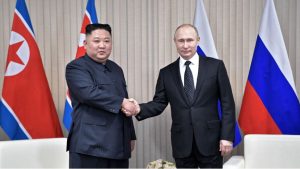By: Neha Chhablani
Visiting Impunity Watch News Writer
STRASBOURG, France – On April 9, 2024, the European Court of Human Rights (ECtHR) ruled on the case of Verein KlimaSeniorinnen Schweiz and Others v. Switzerland, finding that Switzerland violated human rights due to its inadequate efforts to meet emissions reduction targets. This ruling marks a new era in climate and human rights litigation.
 |
The case was filed by 2,000 members of KlimaSeniorinnen Schweiz (Senior Women for Climate Protection), who claimed that global warming threatens their health and living conditions. Four members of the group submitted an additional complaint that climate change-induced heat waves exacerbate their health problems. KlimaSeniorinnen Schweiz had taken its case to multiple national courts and eventually to the Swiss Supreme Court, which dismissed its appeal on May 5, 2020. On December 1, 2020, KlimaSeniorinnen Schweiz submitted its case to the ECtHR. A public hearing took place on March 29, 2023, with the final decision released a year later on April 9, 2024.
KlimaSeniorinnen Schweiz’s complaint contained three primary points:
- Switzerland’s weak climate policies violated Articles 2 (right to life) and 8 (right to respect for private and family life) of the European Convention on Human Rights (ECHR).
- The Swiss Supreme Court’s dismissal of their case violated their right to a fair trial under Article 6 of the ECHR.
- Swiss National Courts did not sufficiently explore the contents of their case, violating Article 13, the right to an effective remedy.
The ECtHR ruled that Switzerland violated Article 8 in a 16-to-1 vote and unanimously voted that it violated Article 6. The court dismissed the complaint related to climate change-induced heat waves, stating that four complainants did not meet victim-status criteria (high intensity of exposure to the adverse effects of climate change and a pressing need to ensure individual protection). The court did not examine potential violations of Articles 2 or 13 given their similarity to those of 6 and 8.
The Court found that Article 8 of the ECHR “encompasses a right to effective protection by the State authorities from the serious adverse effects of climate change on lives, health, well-being and quality of life.” Furthermore, it found significant gaps between Switzerland’s legislative goals regarding emission reduction and its actions such as failing to meet its greenhouse gas (GHG) reduction targets, quantify greenhouse gas emission limitations, or establish other domestic regulatory frameworks.
Pursuant to Article 6 subsection 1, which states that everyone is entitled to a fair and public hearing within a reasonable timeframe, the Court found that Switzerland did not take KlimaSeniorinnen Schweiz’s case seriously, failing to consider scientific evidence and unjustly dismissing the case’s merits.
The Court’s decision is legally binding; the Council of Europe’s Committee of Ministers will supervise Switzerland’s implementation of emission reduction frameworks to redress its violation of the Convention’s Articles.
This ruling not only pressures European governments to reduce GHG emissions but effectively intertwines human rights protection with climate change action; this was the first climate case heard at a regional human rights court. The precedent set by the outcome of Verein KlimaSeniorinnen Schweiz and Others v. Switzerland strengthens numerous pending climate-based cases at the ECtHR. Ultimately, the ruling sets new standards for human rights protection and climate action.
For further information, please see:
Climate Change Litigation Database – KlimaSeniorinnen v Switzerland – 12 Apr. 2024
European Court of Human Rights – Judgment Verein KlimaSeniorinnen Schweiz and Others v. Switzerland: Violations of the Convention for failing to implement sufficient measures to combat climate change – 9 Apr. 2024
European Court of Human Rights – European Convention on Human Rights – 12 Apr. 2024
KlimaSeniorinnen Schweiz – Climate Action – 12 Apr. 2024
Reuters – Climate verdict for Swiss women a warning for European states, oil industry – 12 Apr. 2024



